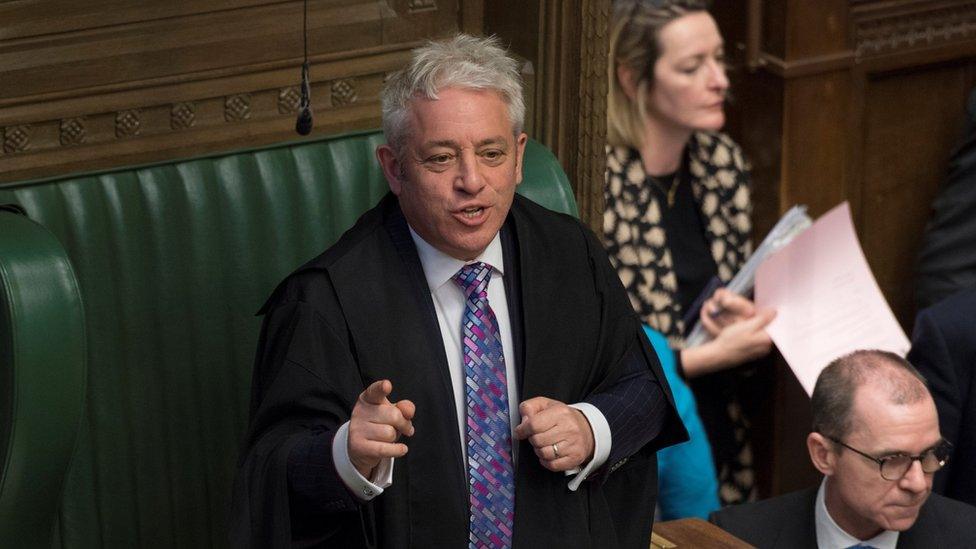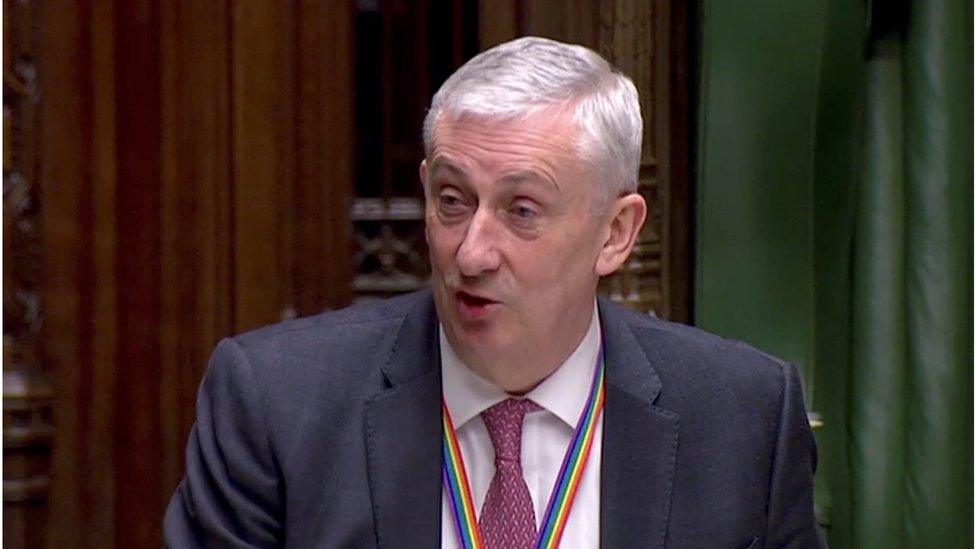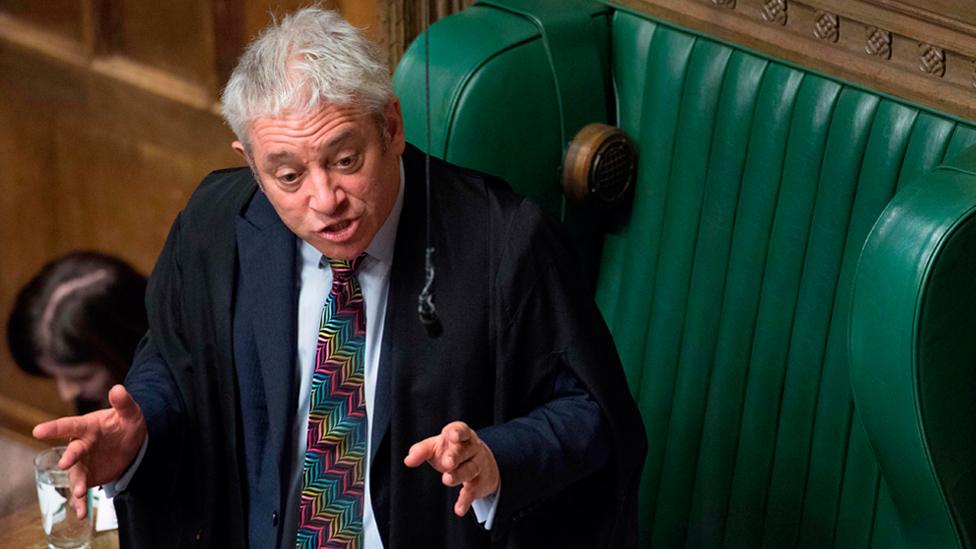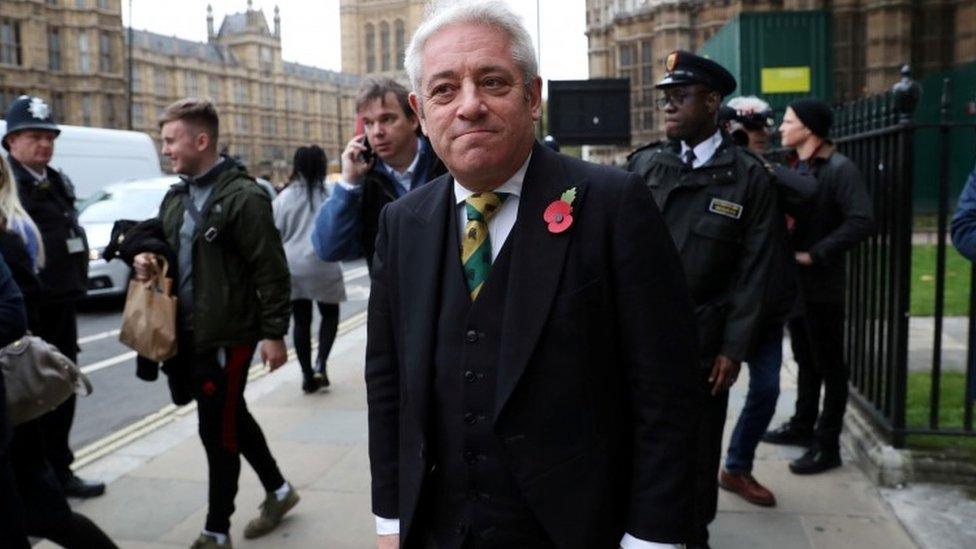What is the Speaker's role in the House of Commons?
- Published

John Bercow has been Speaker since 2009
The Speaker chairs debates in the House of Commons, where MPs consider and propose new laws as well as scrutinising government policies.
He or she is a Member of Parliament (MP) and is elected by other MPs, but must be politically impartial so they can deal with debates fairly.
As a result, they are expected to resign from their party as soon as they become Speaker, although they are still supposed to help their constituents in the way that other MPs do.
In general elections, they stand as "the Speaker seeking re-election" and the main parties do not usually field candidates against them.
MPs either elect or re-elect the Speaker after every general election - it's the first thing they do.
Unparliamentary language
The Speaker decides which MPs will speak in debates and tries to quieten members so that others may be heard.
They also enforce the rules of the House, and may call on an MP to withdraw a remark if it involves any language that they do not consider to be polite enough.
MPs are not allowed to call each other liars. Examples of other words the Speaker has asked to be withdrawn include: blackguard, coward, git, guttersnipe, hooligan, rat, swine, stool pigeon and traitor.
If an MP refuses to withdraw the language then they will be "named", which means they are suspended from the House of Commons.
The Speaker may also suspend a debate. Recent reasons for doing so include water pouring through the ceiling of the House and the government failing to distribute the text of a proposed law that was being debated.
Urgent questions
MPs also elect three deputy speakers, who are also expected to be impartial although they do not have to resign from their parties.
The deputy speaker may also chair debates. In particular, the Budget is always chaired by a deputy speaker.

The current deputy speakers are Lindsay Hoyle (pictured), Eleanor Laing and Rosie Winterton
In addition to keeping order in the House, the Speaker also chooses which amendments will be debated. Amendments are changes to a proposed new law, which are suggested by MPs.
The Speaker decides which can be debated, based on things like whether they are relevant to the subject being discussed or whether they are attempting to reopen an issue that had already been discussed in depth.
He or she also decides whether to allow emergency debates (MPs also have to vote in favour of the debate taking place) or urgent questions to be posed to ministers.
The Speaker is the chief officer of the House of Commons and represents it to the monarch, visiting dignitaries and the House of Lords.
If there is a tied vote in the Commons, the Speaker gets the casting vote, although this is very unusual.
There is guidance for how they should use the casting vote - it is not supposed to be based on their own opinion - they are supposed to favour keeping things as they are or having further debate.
Finally the Speaker chairs the House of Commons Commission, which oversees the administration of the House, appointing staff, setting salaries and maintaining the buildings.



- Published29 May 2019

- Published20 March 2019
- Published9 September 2019
